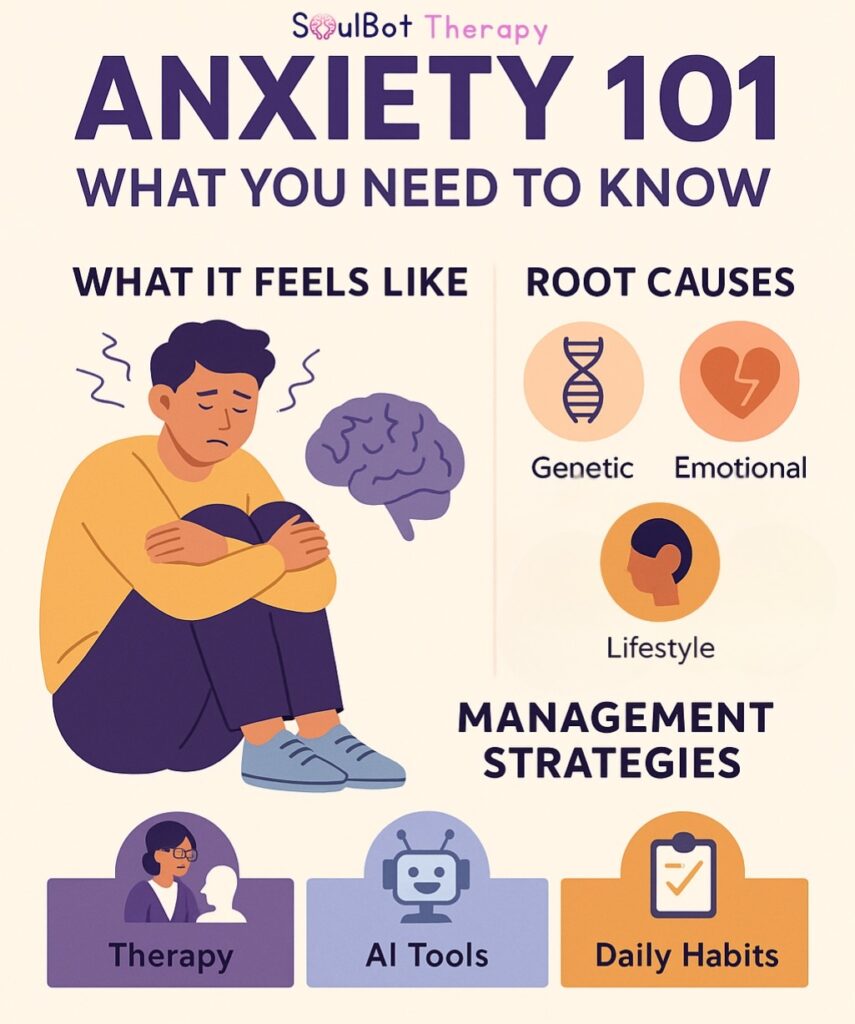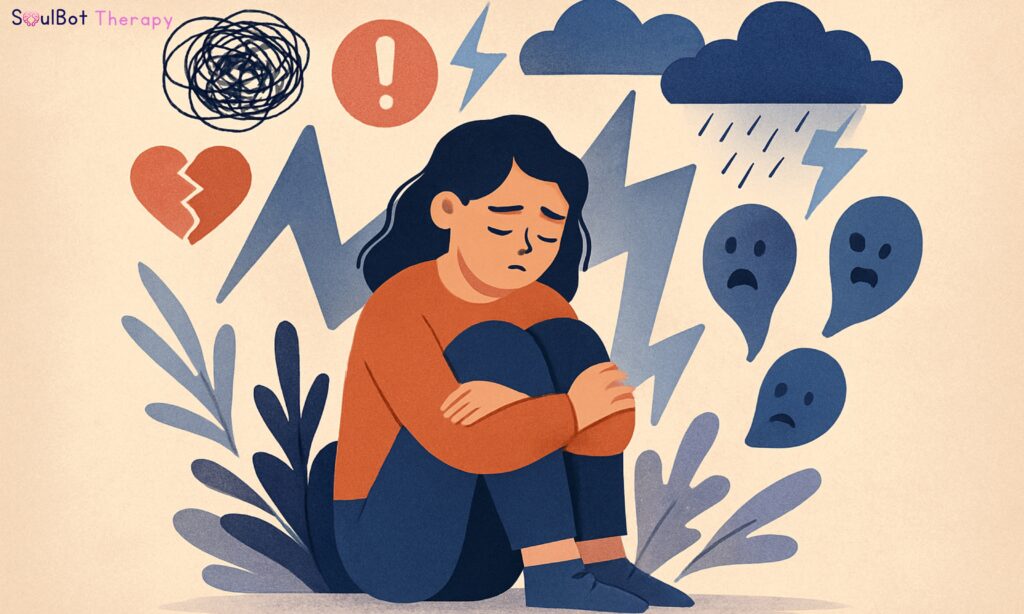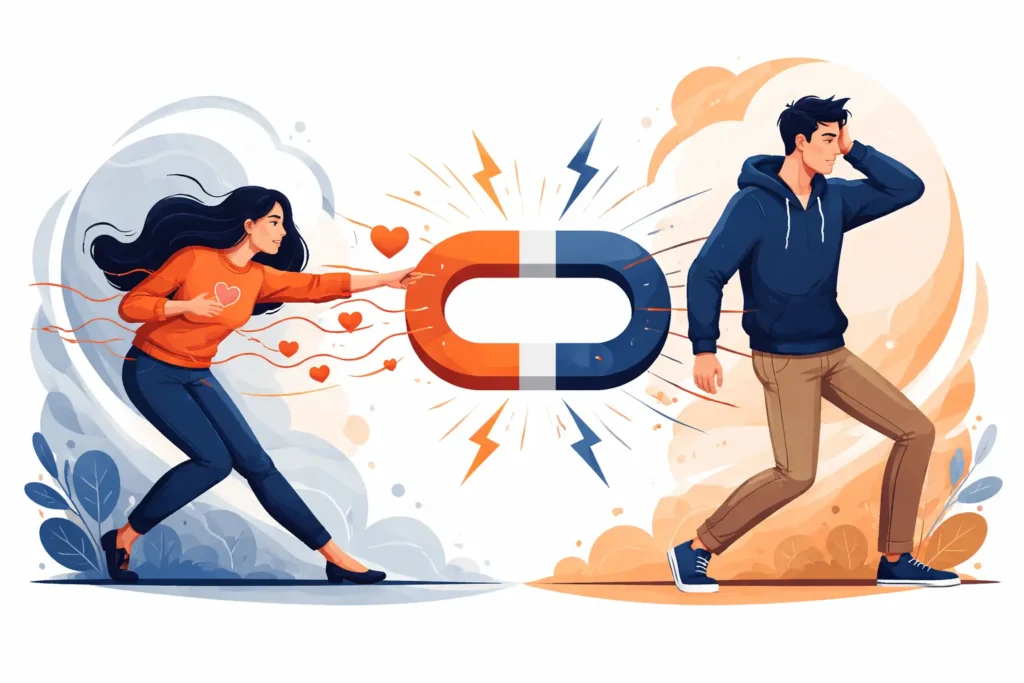What is anxiety? It isn’t “just stress.” It’s a psychological and physical state that, even chronic, can impact your focus, relationships, sleep, and even self-worth. If you’ve ever had your heart race at the thought of sending a simple message, lost sleep over imaginary scenarios, or felt emotionally exhausted after socialising, you’ve experienced tension.
📊 Fun Fact:
According to the World Health Organisation, over 301 million people live with an anxiety disorder worldwide, making it the most common mental health condition globally.
What Is Anxiety?
Anxiety is your body’s natural response to perceived danger, real or imagined. It’s a survival mechanism designed to keep you alert in threatening situations. But when the alarm system never turns off, or starts going off randomly, it becomes overwhelming and unhealthy.
Anxiety = mental overprocessing + physical alertness.
It’s not always obvious. It can feel like:
- Overthinking tiny details
- Constant fear of judgment
- Dreading future events
- Inability to relax, even at home
So, if you’re wondering what is anxiety, it’s not weakness; it’s a response that’s trying (and failing) to protect you.

What Are the Signs of Anxiety?
Anxiety symptoms can vary, but here are the most common ones:
🧠 Cognitive/Emotional Signs
- Racing thoughts
- Irritability
- Difficulty concentrating
- Fear of the worst-case scenario
😰 Physical Symptoms
- Increased heart rate
- Sweating or cold hands
- Muscle tension
- Stomach issues (IBS, nausea)
💤 Behavioural Symptoms
- Avoiding social or professional events
- Replaying past conversations
- Checking things repeatedly
- Trouble sleeping
These are all signs of tension, not personality flaws.
👉 Take the Anxiety Self-Check (Coming Soon)
What Causes Anxiety?
There isn’t one cause, but here are the most common triggers and factors:
| Cause | Description |
|---|---|
| Genetics | Family history of anxiety or mood disorders |
| Environment | Trauma, neglect, stressful life events |
| Brain Chemistry | Imbalance of serotonin, dopamine, or GABA |
| Personality Traits | Perfectionism, sensitivity, fear of failure |
| Lifestyle | Sleep deprivation, poor nutrition, and overstimulation |
Many people ask, “Why am I anxious when nothing is wrong?”
That’s because anxiety often lives in your nervous system, not your logic.What Are the Different Types of Anxiety Disorders?
Understanding which type fits your experience can help with proper care:
- Generalised Anxiety Disorder (GAD): Ongoing worry about everyday life
- Social Anxiety: Fear of judgment or embarrassment in social settings
- Panic Disorder: Sudden intense fear (panic attacks)
- OCD: Repetitive, intrusive thoughts with compulsive behaviours
- Health Anxiety (Hypochondria): Constant fear of illness
- PTSD: Anxiety following traumatic experiences
- Phobias: Intense fear of specific objects/situations
How Anxiety Affects Your Daily Life?
Living in stress isn’t just about panic attacks.
It affects:
- Focus: Hard to complete tasks or absorb info
- Sleep: Trouble falling or staying asleep
- Relationships: Misreading tone, avoiding conflict
- Confidence: Constant self-doubt and second-guessing
It’s exhausting and often invisible.
How to Manage Pressure in Real Life?
Here are science-backed tools that help calm your nervous system:
- Deep breathing: Inhale 4 secs → Hold 4 → Exhale 6
- Body scan meditation: Name where the tension lives in your body
- Movement: Walks, stretching, shaking out your hands
- Journaling: Write your spiralling thoughts to reduce their power
- Limit stimulants: Cut back on caffeine, doom-scrolling
- Talk to someone you trust, or a therapy-based AI like SoulBot
These are accessible ways to manage anxiety, even when it’s loud.
How AI Therapy Can Help You Cope with Anxiety?
SoulBot, your 24/7 AI mental health assistant, is always ready to support you through anxiety.
You can:
- Journal your spirals in real time
- Get calming prompts and body-based cues
- Track emotional patterns
- Reflect privately when you’re not ready to talk to someone yet
SoulBot isn’t a replacement for therapy, but it’s a powerful first step.
You’re Not Overreacting — You’re Overprocessing. And That’s Okay.
Tension doesn’t make you weak; it means your brain is trying to keep you safe, even when there’s no real threat.
What you need isn’t to “calm down”, it’s to feel safe in your body again.
👉 Talk to SoulBot — Your AI Mental Health Coach








